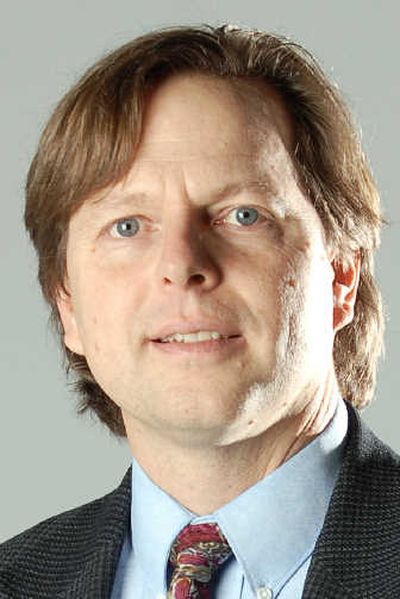Officials accused of violating open-meetings law

OLYMPIA – Spokane’s Center for Justice and two Puget Sound area attorneys on Monday filed five lawsuits across the state, accusing local officials – including some in Spokane – of repeatedly violating open-public-meeting laws.
“The open public meetings act says you don’t get to make public decisions in closed meetings,” said Breean Beggs, an attorney with the public-interest law firm.
Among the targets: the Spokane Regional Clean Air Agency, for allegedly wrongly voting behind closed doors to hire director William Dameworth III in 2006. The group didn’t publicly vote to hire him, the complaint alleges, until four days after he started work. (There are no allegations of any wrongdoing by Dameworth.)
A spokeswoman and an attorney for the clean air agency said Monday that they hadn’t yet read the details of the case and couldn’t comment on the allegations.
The other cases filed Monday include the Port of Longview, which last year allegedly wrongly picked a replacement commissioner – out of a hat – behind closed doors.
“Those meetings should have been open public meetings,” Beggs said. The port’s executive director couldn’t immediately be reached for comment.
Under state law, every meeting must be publicly announced. Meetings can be closed to the public to discuss some specific topics, such as lawsuits.
The lawsuits ask judges to throw out any decisions improperly made in secret, to fine officials $100 per violation, to issue an injunction against future violations and to award attorneys’ fees.
“We thought it was important to start enforcing (the open meetings law) statewide, so local governments wouldn’t just say, ‘Well, no one’s going to do anything about it,’ ” said Beggs.
The state auditor’s office created a road map for such challenges when it recently published the results of hundreds of open-meeting audits of local governments, including cities, counties, a King County drainage district and the state fryer chicken commission. State auditors found more than 500 open-meeting problems.
“We found a range of things, from bad minutes to a fire district that said, basically, that they closed the meeting because they didn’t want anybody to hear what they were saying,” said Mindy Chambers, a spokeswoman for state Auditor Brian Sonntag.
Among those findings: that the Spokane Regional Clean Air Agency also improperly had three of its five board members meet, without telling the public, for weeks behind closed doors as part of a search committee for a new director.
Chambers said she hadn’t seen the cases filed Monday, but said “to characterize this as a solution looking for a problem is not accurate.”
The open-meetings suits are only the first round, Beggs said. The center and two private attorneys – Greg Overstreet and Michele Earl-Hubbard – also plan to challenge government denials of public records. Beggs said the center is accepting complaints from citizens, then testing compliance by making a similar request.
So far, he said, the center has found that some government agencies charge more than allowed for copies, some improperly charge a fee for deleting private information from documents, and one wrongly tries to charge people seeking computer records for the staff time to copy those records.
Such court challenges, particularly over public meetings violations, are rare.
“I think (public officials) have gotten used to breaking the law,” said Overstreet, a former assistant attorney general. “If I could drive 100 miles an hour down the road with no consequences, I would be less inclined to obey the speed limit.”
Beggs argues that unnecessary secrecy hurts government credibility.
“It fuels speculation and negative thinking, even if it’s not justified,” he said.